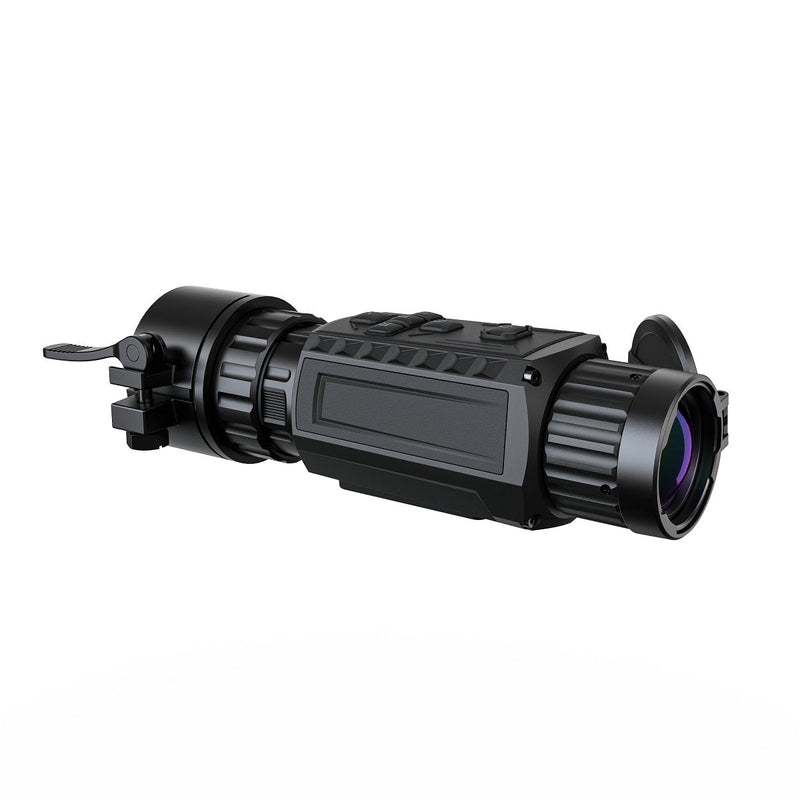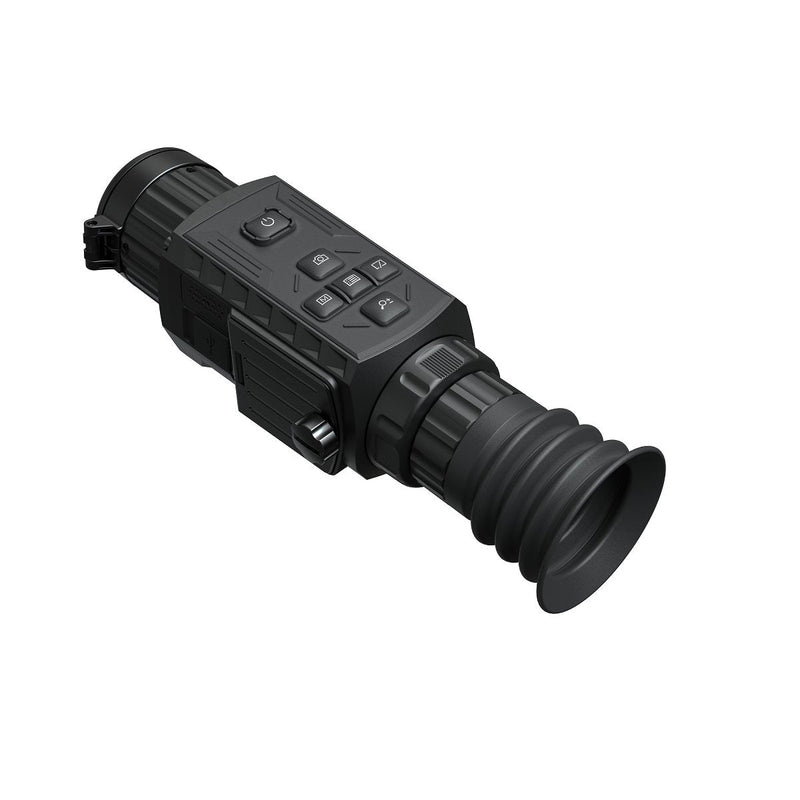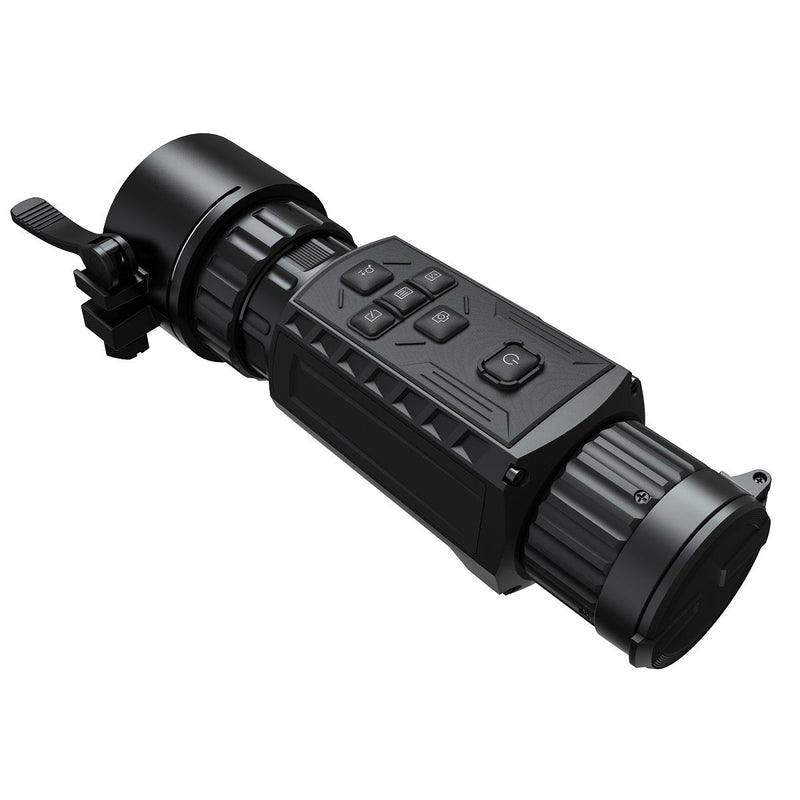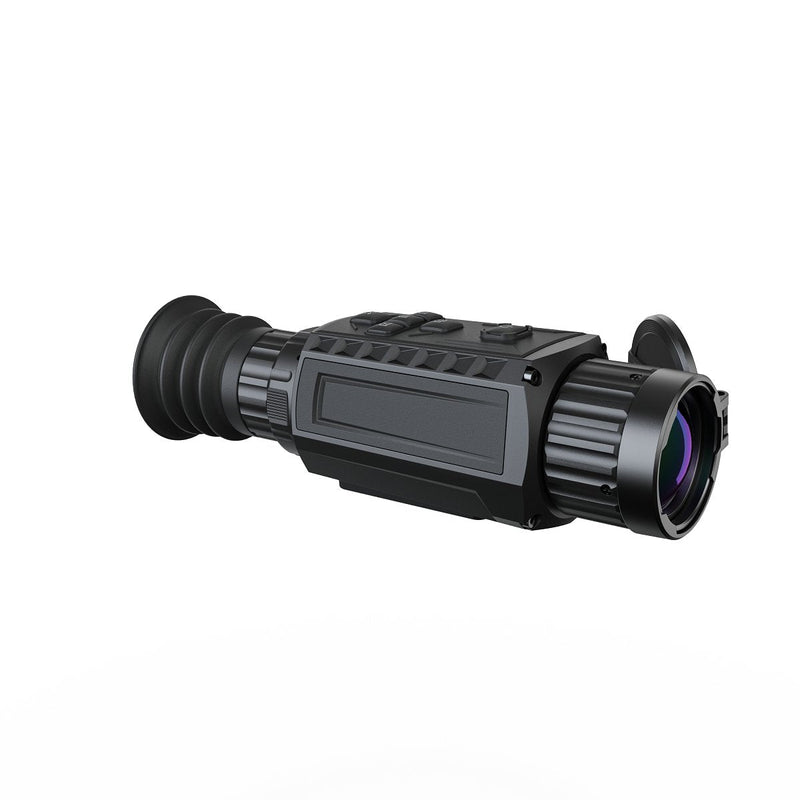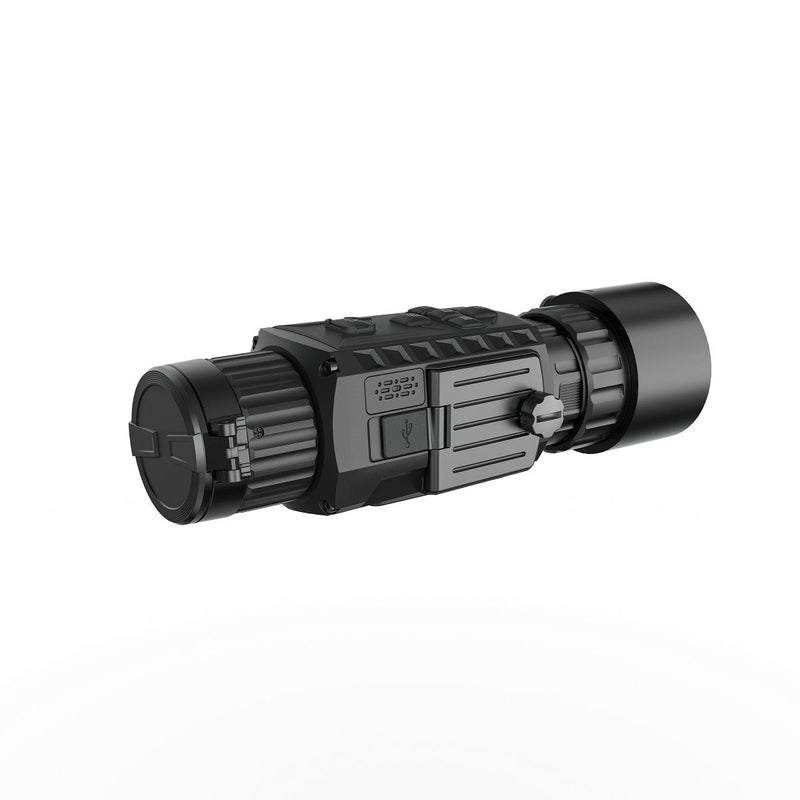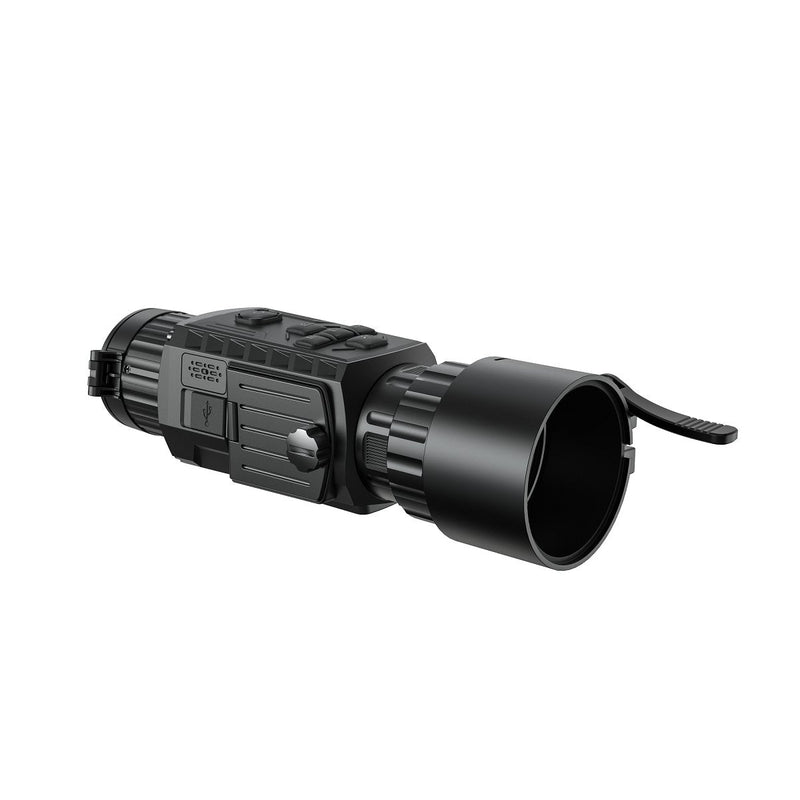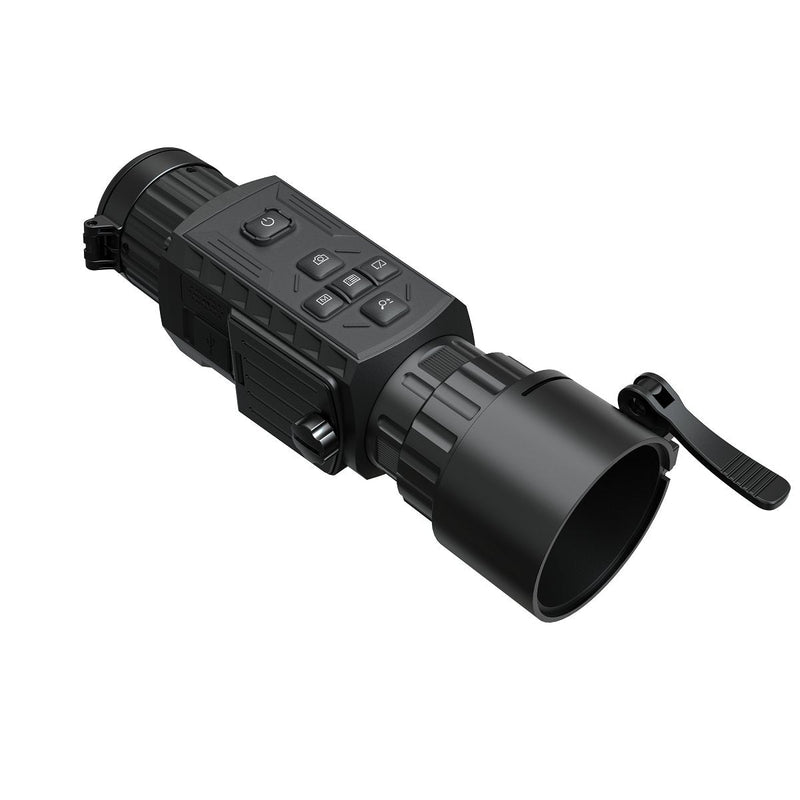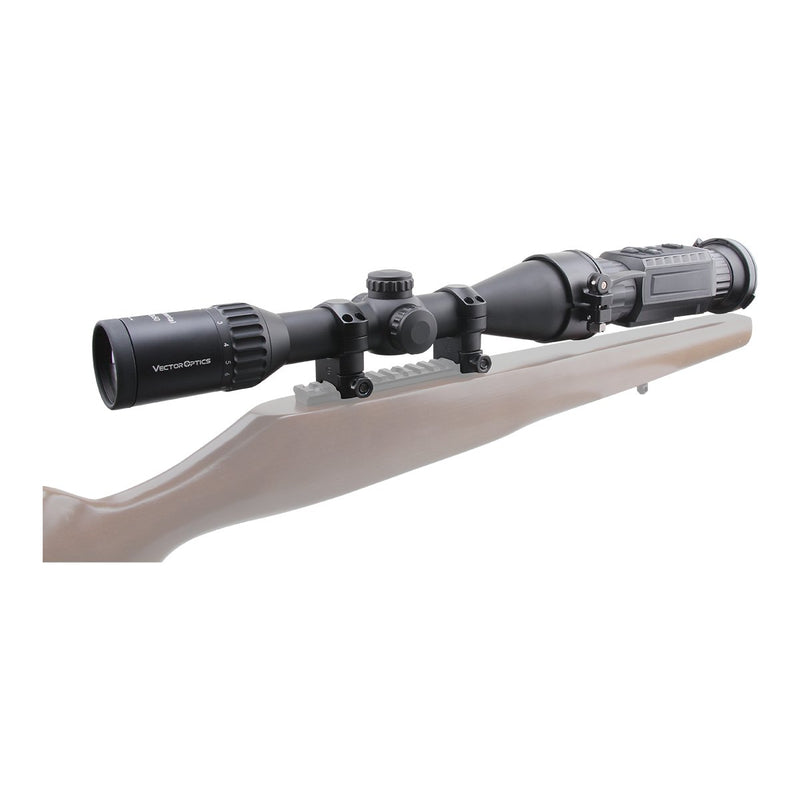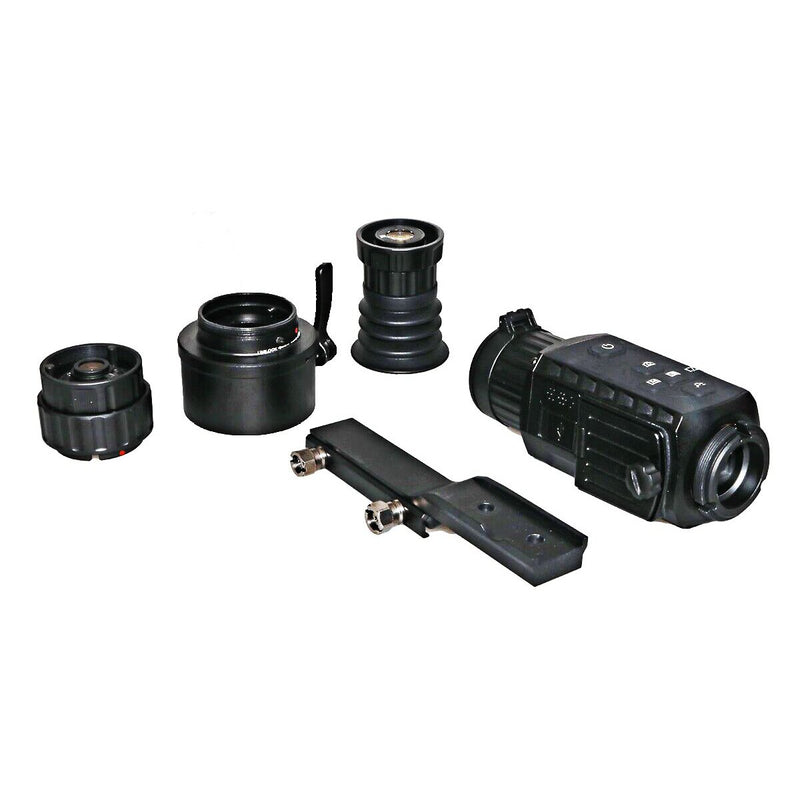· The 35mThe 35mm thermal module is the centre of the system with its 35mm lens system and 384x288px . The matrices are built using 12 um technology, which makes it possible to obtain a greater optical magnification without increasing the external dimensions of the device.
· Based on VOx (vanadium oxide) technologies, with high thermal sensitivity, 35 NETD performance of the sensor ensures detection of small temperature changes and excellent performance in harsh conditions. This increases the detection range of heat-contrast objects and makes it possible to “see the substrate”m thermal module is the centre of the system with its 35mm lens system and 384x288px . The matrices are built using 12 um technology, which makes it possible to obtain a greater optical magnification without increasing the external dimensions of the device.Based on VOx (vanadium oxide) technologies, with high thermal sensitivity, 35 NETD performance of the sensor ensures detection of small temperature changes and excellent performance in harsh conditions. This increases the detection range of heat-contrast objects and makes it possible to “see the substrate”
| Magnification | 1x |
| Resolution | 384 × 288 |
| NETD | less than 35 mK (25 °C, F#=1.0) |
| Angular Field of View: | 7.5° × 5.7° |
| Length | 179 mm / 7.0 in |
| Weight (net) | 532 g / 18.8 oz |
| Display Screen | 1024x768, 0.39 inch, OLED |
| Eye Relief | 10 mm |
| Color Palettes | Black hot, white hot, red hot, fusion |
| Hotspot Tracking | Yes |
| Waterproof | IP67 |
| Battery | CR123A, RCR123A |
| Battery Runtime | 8 h (25 °C, with hotspot off) |
· The 35mThe 35mm thermal module is the centre of the system with its 35mm lens system and 384x288px . The matrices are built using 12 um technology, which makes it possible to obtain a greater optical magnification without increasing the external dimensions of the device.
· Based on VOx (vanadium oxide) technologies, with high thermal sensitivity, 35 NETD performance of the sensor ensures detection of small temperature changes and excellent performance in harsh conditions. This increases the detection range of heat-contrast objects and makes it possible to “see the substrate”m thermal module is the centre of the system with its 35mm lens system and 384x288px . The matrices are built using 12 um technology, which makes it possible to obtain a greater optical magnification without increasing the external dimensions of the device.Based on VOx (vanadium oxide) technologies, with high thermal sensitivity, 35 NETD performance of the sensor ensures detection of small temperature changes and excellent performance in harsh conditions. This increases the detection range of heat-contrast objects and makes it possible to “see the substrate”


| Magnification | 1x |
| Resolution | 384 × 288 |
| NETD | less than 35 mK (25 °C, F#=1.0) |
| Angular Field of View: | 7.5° × 5.7° |
| Length | 179 mm / 7.0 in |
| Weight (net) | 532 g / 18.8 oz |
| Display Screen | 1024x768, 0.39 inch, OLED |
| Eye Relief | 10 mm |
| Color Palettes | Black hot, white hot, red hot, fusion |
| Hotspot Tracking | Yes |
| Waterproof | IP67 |
| Battery | CR123A, RCR123A |
| Battery Runtime | 8 h (25 °C, with hotspot off) |
· The 35mThe 35mm thermal module is the centre of the system with its 35mm lens system and 384x288px . The matrices are built using 12 um technology, which makes it possible to obtain a greater optical magnification without increasing the external dimensions of the device.
· Based on VOx (vanadium oxide) technologies, with high thermal sensitivity, 35 NETD performance of the sensor ensures detection of small temperature changes and excellent performance in harsh conditions. This increases the detection range of heat-contrast objects and makes it possible to “see the substrate”m thermal module is the centre of the system with its 35mm lens system and 384x288px . The matrices are built using 12 um technology, which makes it possible to obtain a greater optical magnification without increasing the external dimensions of the device.Based on VOx (vanadium oxide) technologies, with high thermal sensitivity, 35 NETD performance of the sensor ensures detection of small temperature changes and excellent performance in harsh conditions. This increases the detection range of heat-contrast objects and makes it possible to “see the substrate”













